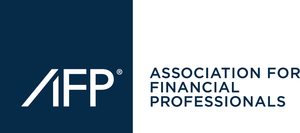Four in Five Companies Could Drop Money Funds if Floating NAV Becomes Reality, AFP Survey Shows
Move might add concentration risk to banking system, limit sources of corporate funding
WASHINGTON, Jan. 11, 2011 /PRNewswire/ -- If money market mutual funds (MMFs) are required to shift to a floating net asset value (NAV) reporting structure, as some policy makers have called for, many corporations would drop these funds from their portfolios, according to a survey by the Association for Financial Professionals (AFP). Four out of five organizations that currently include MMFs in their short-term investment portfolios would likely move at least some of these investments to other vehicles if MMFs were to shift to a floating NAV.
In follow-up questions to AFP's recent 2011 Business Outlook Survey, 54 percent of survey respondents indicate that their organizations would shift corporate cash into bank deposits and U.S. Treasury securities and out of money funds if a floating NAV becomes reality. Of those responding, 22 percent would move funds out of MMFs and into non-2a-7 fixed-value investment vehicles, such as offshore money market funds, enhanced cash funds and stable value vehicles. Four percent of survey respondents anticipate their organization would move funds currently in MMFs into other short-term, variable share price investments, such as ultra short bond funds.
These responses represent corporations and other organizations, such as academic institutions, but not banks or financial institutions.
"Where will $2.8 trillion be invested if we move to a floating NAV?" asked Brian Kalish, AFP's finance practice lead. "Many companies would not be able to consider MMFs as viable short-term investment vehicles if the NAV floats because it would put them in violation of their own investment policies."
"If the $2.8 trillion moves into the banking system, we would be trading the diversification that MMFs provide for the increased concentration risk of investing in a very small number of very large banks," Kalish said.
The $2.8 trillion that organizations invest in MMFs also provides a critical source of funding to U.S. businesses through the purchase of commercial paper. A reduction in the balances held in money funds would reduce capital available to purchase commercial paper, which companies utilize to fund their operations and short-term funding needs. Companies would have to find an alternate funding source, or reduce their spending to compensate for funding shortfalls.
On the other hand, some financial professionals surveyed do believe that the NAV should be allowed to float, ostensibly to provide greater transparency for investors. This echoes the view expressed by the President's Working Group (PWG) on Financial Markets, which issued an October report suggesting more reforms to ensure the resiliency of MMFs during periods of financial crises. AFP supports investment transparency but remains concerned by the unintentional consequences of a transfer of risk to the banking system.
AFP members, who are responsible for ensuring that their organizations have enough cash on hand to fund operations, are uniquely positioned to observe the cash flows and investment decisions of their organizations. Since they work in a wide range of industries and in both public and private organizations of varying sizes, their opinions reflect a broad corporate perspective that is both operational and strategic.
ABOUT THE SURVEY
From November 29 through December 10, 2010, the AFP surveyed U.S. financial professionals about current and expected business conditions in the U.S., then sent follow-up questions based upon policy issues, which included potential floating NAV for MMFs and corporate tax issues for repatriated cash. These two issues are the focus of the 2011 AFP Business Outlook Survey Policy Supplement. The original survey generated 808 responses from professionals holding a variety of positions within their organizations, including CFO, vice president of finance, treasurer and assistant treasurer. The results produce a margin of error of +/- 3.4 percent.
View 2011 AFP Business Outlook Survey Policy Supplement: www.afponline.org/moneyfunds
ABOUT AFP®
The Association for Financial Professionals (www.afponline.org) serves a network of more than 16,000 treasury and finance professionals. Headquartered outside Washington, DC, AFP provides members with news, economic research and data, treasury certification programs, networking events, financial analytical tools, training, and public policy representation to legislators and regulators.
AFP's global reach extends to over 150,000 treasury and financial professionals worldwide, including AFP of Canada; London-based gtnews, an on-line resource for the treasury and finance community; and bobsguide, a financial IT solutions network.
SOURCE Association for Financial Professionals
WANT YOUR COMPANY'S NEWS FEATURED ON PRNEWSWIRE.COM?
Newsrooms &
Influencers
Digital Media
Outlets
Journalists
Opted In




Share this article